Dental implants cost varies depending on a number of variables, including the dental office's location, the intricacy of the case, and the materials employed. Understanding the ordinary expenditure and elements influencing the expense of dental implants is advantageous for making an informed judgment about the method. Dental implants are a costly method, so anybody planning about getting them as a tooth replacement choice needs to be conscious of that.
Dentures or bridges are extra high-priced compared with dental implants. They offer a long-lived and useful answer for restoring the look and functionality of lost teeth. Patients investigate the factors that determine the expense of dental implants and induce informed decisions about their oral health and monetary position, ultimately choosing the medication that best suits their needs.
Dental implants have average expenses, and the price of the medical operation is influenced by a total of variables. Dental implants have several benefits and drawbacks when in comparison to alternative tooth replacement choices, as well as information on how much they cost.
Dental implants are a popular and dependable method of substituting lost teeth, but numerous individuals are concerned about the expenditure of the method.
Type of Dental Implant | Description | Price Range (£) |
Single Tooth Implant | Cost of replacing one missing tooth with an implant. | £400 - £850+ |
Multiple Tooth Implant | Cost of replacing several missing teeth with implants. | £800 - £1700+ |
Full Mouth Implant | Cost of replacing all teeth with implants. | £1600 - £6800+ |
How Much is the Average Cost of Dental Implants?
Below is the list of the average cost of dental implants.
- Single Tooth Implant: The worth of a single tooth implant is from around £800 up to £2850 or more, depending on many factors. The whole amount for a single tooth implant is influenced by several factors such as the place of the dental practice, the materials involved, and the expertise of the dental professional.
- Multiple Tooth Implant: The average cost is £1600 up to £4000 or more for multiple implants. Visiting a dental professional to know the exact price based on individual needs and goals is crucial. The total cost for multiple implants is higher than the cost for a single tooth implant due to the difficulty and increased number of implants required.
- Full Mouth Transplant: The price of a full mouth implant is from £3200 to £26800 or more. However, it's important to note that the total cost is expected to be influenced by several individual factors and vary from patient to patient.
1. Single Tooth Implant
A dental technique known as a single-tooth implant includes using a dental implant to substitute just one lost tooth. The implant is a tiny, screw-shaped post that is medically inserted into the jawbone to act as a synthetic dental crown. It is constructed of biocompatible materials like titanium. It is an anchor that helps as a link where the implant meets the prosthetic tooth or crown and is affixed to the implant after it has combined with the bone.
The fabrication of a functional replacement tooth with a realistic appearance is then completed by attaching a crown or prosthetic tooth affixed to the abutment. A dental practitioner must conduct a thorough examination to decide whether a single-tooth implant is the best option. The crown or prosthetic tooth is next attached once the implant has been surgically placed. Single-tooth implants are regarded as a durable and highly successful method of replacing missing teeth.
A candidate for a single-tooth implant is someone who has only lost one tooth, provided they have sufficient bone density and good oral health. A thorough evaluation by a dental professional is required to decide whether a single-tooth implant is the best choice.
There are often multiple processes involved in receiving a single tooth implant. The dental professional evaluates the patient's oral health and knows if they are a good candidate for the procedure. The implant is going to be put into the jawbone through surgery. A procedure that takes place over the following several months is osseointegration, which allows the implant to join the bone.
An abutment is going to be attached to the implant, which helps as a connection between the implant and the artificial tooth, once the implant has fully integrated with the bone. A crown (or artificial tooth) is attached to the abutment, providing a natural-looking and functional replacement tooth.
A single-tooth implant works by replacing the missing tooth and its root with a biocompatible implant and crown. It provides a stable and lifelong solution that closely mimics the form and performance of a natural tooth, supporting oral health and restoring a patient's confidence in their smile.
A single tooth implant is a dental implant that serves as a replacement for a single missing tooth. It is a popular and effective solution for restoring the appearance and function of a natural tooth. The implant is typically made of biocompatible materials, such as titanium, which allows it to integrate with the jawbone. Once the implant is securely placed in the jawbone, a dental crown is attached to it, creating a natural-looking and functional replacement tooth. The average cost of a single tooth implant can range from £800 to £2850, depending on various factors such as the location, complexity of the procedure, and additional treatments required.
A single-tooth implant costs money because it involves multiple parts and services. It includes the implant itself, which is a small, screw-shaped post made of biocompatible materials that are surgically placed into the jawbone to serve as an artificial tooth root. Additionally, the abutment is the component that assigns to the top of the implant and serves as a connection between the implant and the artificial tooth or crown. The crown or artificial tooth is the visible part of the implant that is attached to the abutment and serves as a natural-looking and functional replacement tooth. The cost of the surgery is included, which involves implant placement by an oral surgeon or periodontist. Preparatory procedures, such as bone grafting or tooth extractions, are required prior to implant placement, which increases the overall cost. Finally, follow-up care is required to monitor the healing process and ensure the implant is functioning properly. It is important to note that the cost of a single tooth implant varies widely depending on several factors, and a thorough evaluation by a dental professional is recommended to get an accurate estimate of the total cost of the procedure.
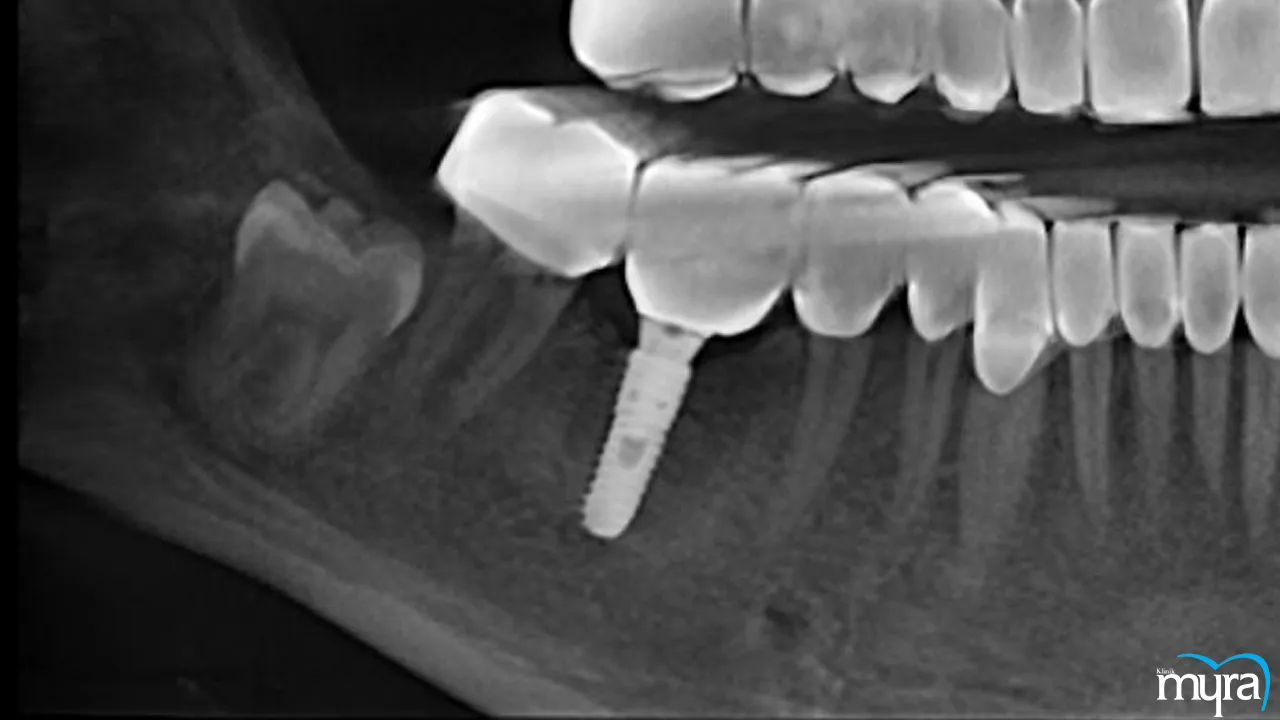
2. Multiple Tooth Implant
A form of dental implant called a multiple-tooth implant is utilized to insert an absent tooth or teeth. These techniques involve the surgical insertion of more than one dental implant supporting a dental bridge or denture on the jawbone, offering a safe and effective substitution for numerous lost teeth. The implants uphold the denture or dental bridge that has synthetic tooth roots and is constructed of biocompatible materials, for example, titanium. Multiple tooth implants are an effective long-term approach to substitute absent teeth with the purpose of resembling the appearance and functionality of real teeth closely. The method entails a thorough examination by a dental expert, placing the implants through surgery, followed by attaching a dental bridge or denture to the implants.
A multiple-tooth implant is needed once a patient has multiple missing teeth in a row and wants a durable and effective resolution to exchange them. An implant is a viable selection for individuals who have lost teeth due to injury, deterioration, or other dental conditions.
The method includes the medical positioning of two or more dental implants within the jawbone, which help as artificial tooth roots to assist a dental bridge or denture. The implants are built of biocompatible stuff for example titanium and are designed to merge with the bone after some time in a method called osseointegration. A dental bridge or denture is joined to the implants after they have integrated with the bone, which delivers a secure and operative substitute for the absent teeth.
The procedure typically involves a comprehensive evaluation by a dental professional to determine if a multiple-tooth implant is the greatest choice for the patient. The assessment of a patient's oral condition, the condition of the jawbone, and any potential risk factors that impact the success of the multiple tooth implant technique are included. The patient undergoes a duration of healing and restoration after the surgical placement of the implants before the dental bridge or denture is going to be attached to the implants. Multiple tooth implants provide a long-lasting resolution to substitute missing teeth and improve the general health and function of the mouth with appropriate treatment and upkeep.
A multiple tooth implant is a dental implant procedure designed to replace two or more missing teeth. This treatment involves the surgical placement of dental implants into the jawbone, which serve as anchors to support a dental bridge or denture. The implants provide a stable and secure foundation for the prosthetic teeth, allowing for improved chewing function, speech, and aesthetics. The number of implants required will depend on the specific case and the number of missing teeth being replaced. The average cost of multiple tooth implants can range from £1600 up to £4000, depending on factors such as the number of implants needed, the complexity of the case, the type of restoration used, and any additional treatments required. It is important to consult with a dental professional to determine the exact cost based on individual circumstances.
Individuals who undergo multiple tooth implants are paying for the whole process of changing two or more tooth loss with dental implants. A careful analysis by a dental professional is included in determining if multiple dental implants are the ideal resolution. A dental bridge or denture is connected to two or more implants that have been surgically inserted into the jawbone.
The patient is paying for the materials used in the implants themselves, which are made of biocompatible materials such as titanium. Additionally, the price covers any preliminary treatments that are necessary prior to the implant surgery, such as extraction of teeth or bone grafting.
The cost of multiple tooth implants is based on a variety of things, including the number of missing teeth, the complexity of the case, and the location of the dental practice. Multiple tooth implants are considered a long-lasting and successful method of replacing lost teeth. The investment is often worth it for patients seeking a durable and functional replacement.
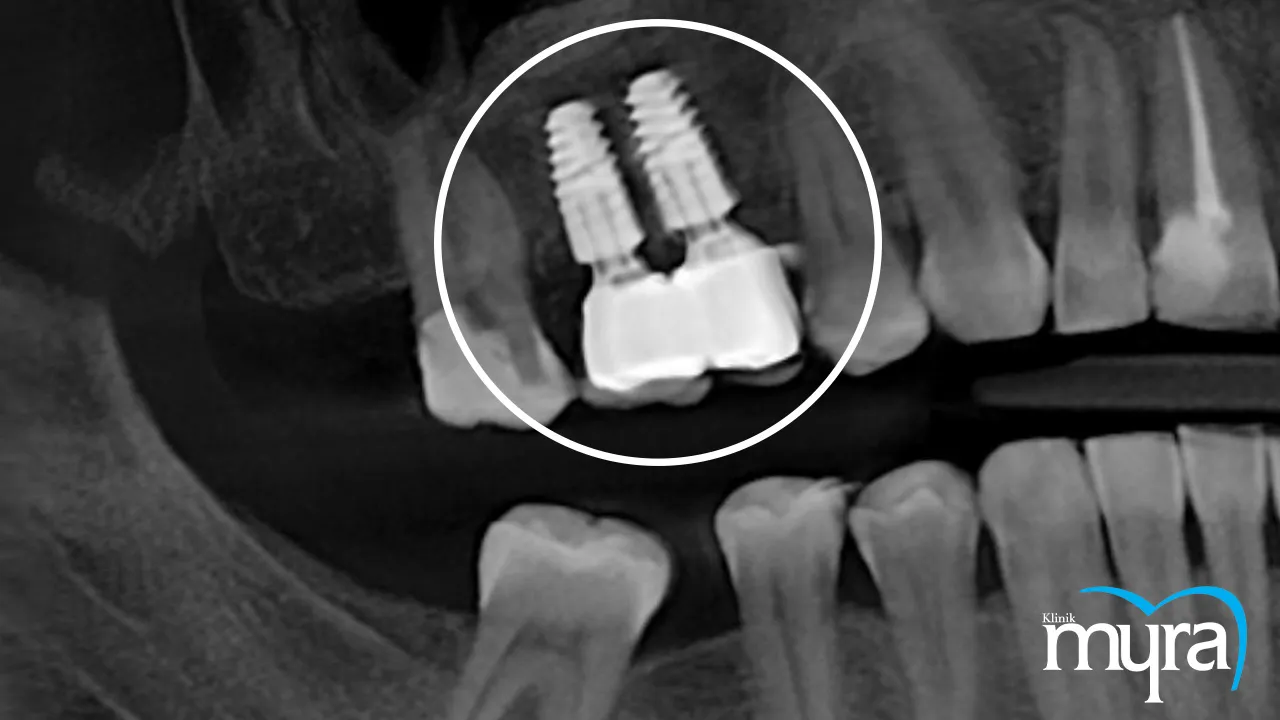
3. Full Mouth Implant
Whole mouth implants, referred to as complete tooth restoration, are a dental operation that entails using dental implants to change all teeth in the upper jaw as well as the lower jaw. Whole mouth implants are a form of restorative material created to satisfy every patient's unique demand while restoring the function and aesthetics of the teeth. Careful investigation of the individual’s dental health, surgical placement of the implants, and attachment of the prosthetic teeth are all milestones in the process of having full mouth implants. Individuals who have lost a significant number of teeth or who have serious dental problems that demand substantial treatment are often advised to get full mouth implants.
The process of getting full mouth implants includes several steps, including a thorough evaluation of the individual’s oral health, the surgical placement of the implants, and the attachment of the prosthetic teeth. The dental implants are customized to meet the specific needs of each patient, and the prosthetic teeth are designed to closely copy the appearance and functionality of natural teeth.
Full mouth implants are considered a long-lasting and effective solution for restoring the purpose and looks of the teeth. Full mouth implant provides a significant development in the patient's ability to speak, chew, and smile with confidence, and helps to prevent further damage to the remaining teeth and gums.
A full mouth implant is a comprehensive dental procedure that involves the replacement of all or most of the teeth in both the upper and lower jaw with dental implants. This treatment is suitable for individuals who have lost a significant number of teeth or are experiencing extensive tooth decay, gum disease, or other dental issues. The procedure typically involves the surgical placement of multiple dental implants throughout the jawbone to provide a stable foundation for the prosthetic teeth. Full mouth implants offer numerous benefits, including improved chewing function, speech, aesthetics, and overall oral health. The average cost of a full mouth implant can vary depending on factors such as the number of implants required, the complexity of the case, the type of restoration chosen (e.g., implant-supported dentures or individual crowns), and any additional treatments necessary, such as bone grafting or sinus lift surgery. On average, the cost of full mouth implants ranges from £3200 to £26800. It is important to consult with a dental professional to assess your specific needs and receive an accurate cost estimate based on your unique circumstances.
People who undergo a full mouth implant procedure, a patient pays for a complete dental process involving the surgical placement of multiple dental. The price varies based on several factors, including the number of implants needed, the difficulty of the case, the location of the dental practice, and any necessary preparatory procedures.
The cost of a full mouth implant procedure includes a thorough evaluation by a dental expert to know the best treatment option, the surgical implantation of the implants, and the attachment of prosthetic teeth. The cost covers any needed preparatory procedures, such as bone grafting or tooth extraction, and the biocompatible materials used to create the implants.
The cost covers any follow-up care needed to ensure the procedure's success. The cost of full mouth implants is higher compared to other tooth replacement alternatives, they are regarded as lifelong and the best solution for restoring the teeth's looks and function. Patients frequently find that the expense is worth the enhanced quality of life and dental health that full-mouth implants provide.
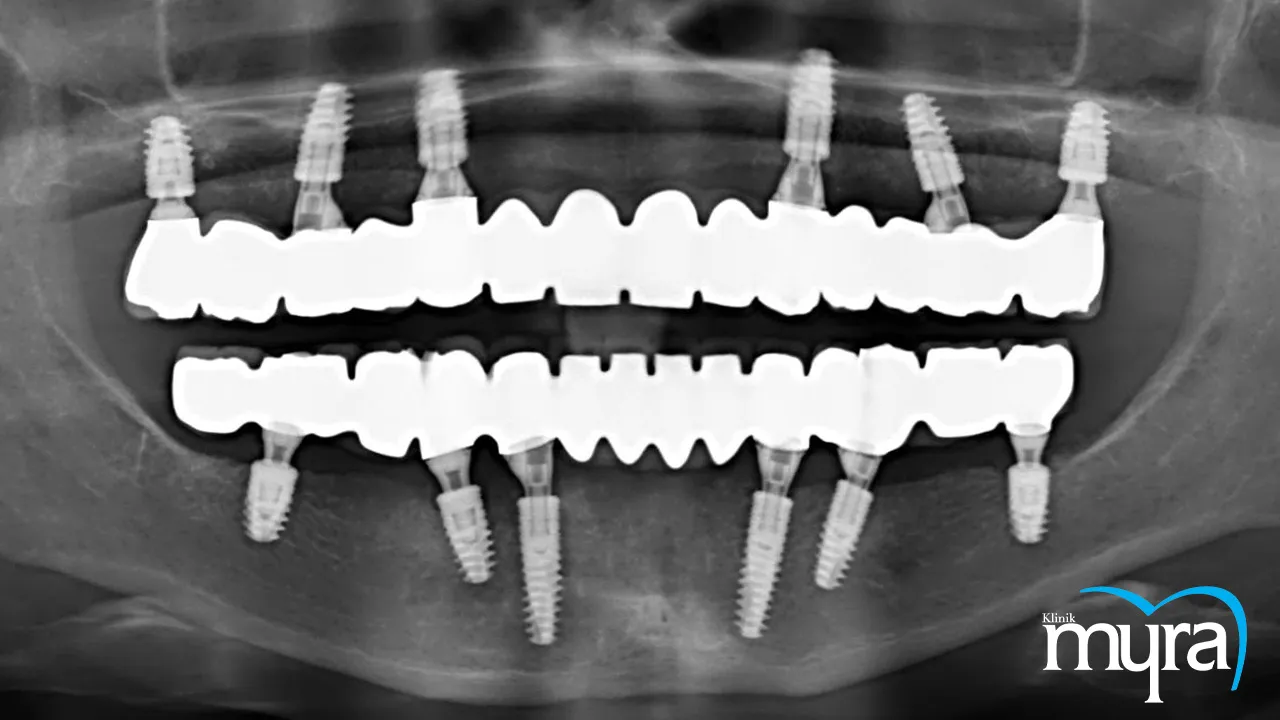
Why is a full mouth Implant expensive?
A full-mouth implant procedure is expected to be expensive due to several factors. The placement of multiple dental implants and custom-made dental prostheses requires specialized skills and equipment, which increase the cost of the procedure. Additionally, the materials used in the procedure, such as titanium for the dental implants and high-quality materials for the dental prosthesis add to the cost. The cost varies depending on the location of the dental practice and the level of expertise of the dental professional performing the procedure.
Entire mouth implantation entails an extensive examination of the patient's oral health and treatment objectives. The installation of numerous dental implants throughout the jawbone, and the affixing of a custom dental prosthesis to the implants. A visit with a dental expert is usually the first step in the process to ascertain whether the individual in question is an appropriate candidate for the operation. The dental implants are then surgically implanted into the jawbone while being sedated or given a local anesthetic. The customized dental prosthesis is attached to the implants after healing and osseointegration, creating a functional and realistic-looking tooth replacement.
A procedure called a full mouth implant replaces the patient's natural teeth with dental implants. The procedure offers a complete and permanent solution for people who lost most or all of their natural teeth. A whole-mouth implant operation helps patients with significant tooth loss regain function, aesthetics, and confidence by using dental implants to support a personalized prosthesis.
A complete mouth implant treatment makes use of biocompatible materials and high-quality equipment. Dental implants are made of titanium, while customized dental prostheses are made of zirconia or porcelain. The components are strong, long-lasting, and biocompatible, meaning that they blend in with the surrounding bone tissue and are well-tolerated by the body. Different materials are expected to be employed depending on the needs and objectives of the patient
What are the Factors Affecting the Cost of Dental Implants?
Below is the list of factors affecting the cost of dental implants.
- Dentist Experience: The cost is affected by the dentist's level of training and experience, with more seasoned dentists frequently charging more because of their skills and knowledge.
- Dental Implant Materials: The type of dental implant materials used has a significant impact on the procedure's final cost; premium materials like titanium and porcelain are frequently more expensive but provide higher stability and endurance.
- Preliminary Procedures: It is possible to be required to have bone grafting or tooth extractions, which raises the overall cost of the process before having dental implant surgery. The need for these additional procedures depends on each patient's oral health, so it's crucial to talk to a dental professional about any potential additional charges in order to choose the best course of action.
- Location of Clinic: The location of the dental office affects how much dental implants cost, with urban or wealthy dental offices often charging more than those in rural or sparsely populated locations.
- Individual Characteristics of Patient: The price of implant dentistry surgeries is influenced by the patient's unique characteristics, including oral health, the number of implants needed, and the materials utilized.
Type of Dental Implant | Description | Price Range in Turkey (£) | Price Range in USA ($) |
Single Tooth Implant | Cost of replacing one missing tooth with an implant. | £400 - £850+ | $2,418 - $3,224+ |
Multiple Tooth Implant | Cost of replacing several missing teeth with implants. | £800 - £1700+ | $6,000 - $10,000+ |
Full Mouth Implant | Cost of replacing all teeth with implants. | £1600 - £6800+ | $20,000 - $50,000+ |
1. Dentist Experience
The level of experience and expertise of the dental professional doing the dental implant affects the cost. Experienced dentists who have undergone additional training and have a track record of successful implant procedures charge higher fees than less experienced dentists. More experienced dentists typically have a higher level of skill and knowledge. They are better at handling complex cases or addressing any potential complications during the procedure. Different dentist types, such as general dentists, periodontists, and oral surgeons, have varying levels of experience and training in performing dental implant procedures. It is important to note that the level of experience of the dental professional is just one factor that affects the cost of dental implants. Other factors such as the number of implants required, the materials used, and the location of the dental practice do affect the cost.
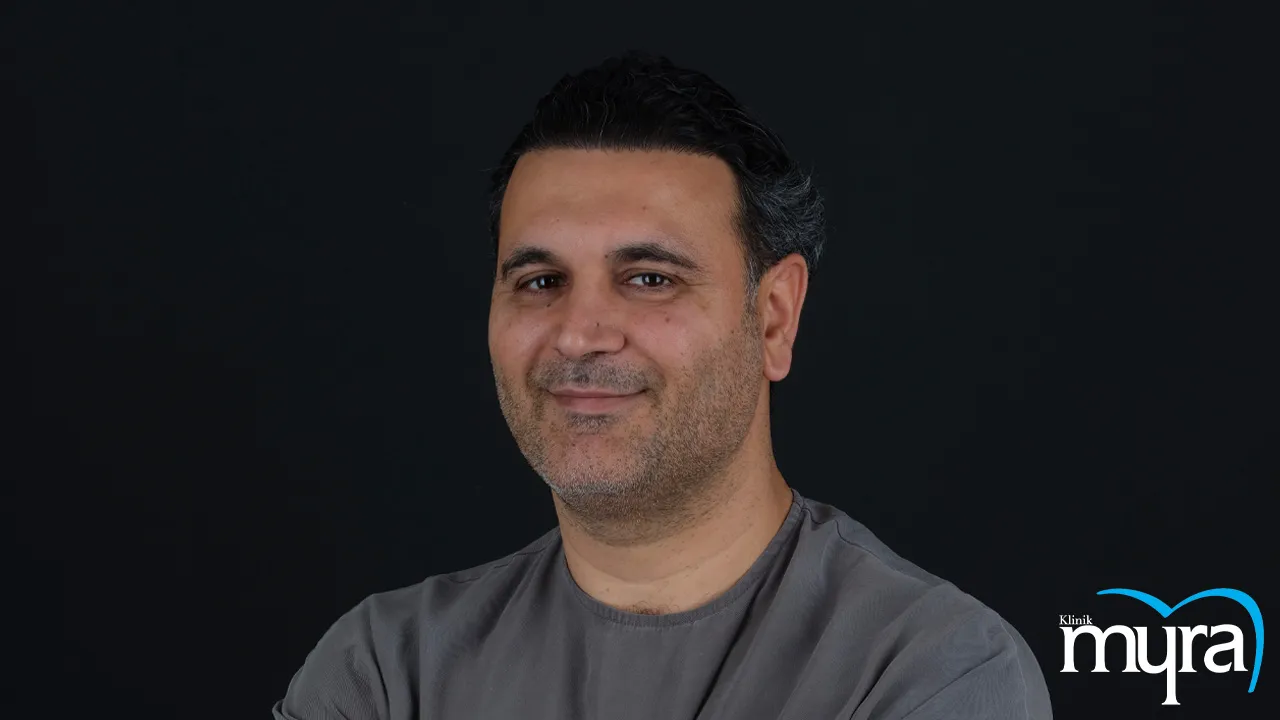
2. Dental Implant Materials
Dental implants are a type of dental restoration that provides a permanent and durable solution for missing teeth. High-quality materials such as titanium for the implant post and porcelain or zirconia for the dental prosthesis tend to be more expensive than other materials. However, these materials are durable, biocompatible, and offer long-lasting results. The dental implant materials used affect the overall cost of the procedure. Less expensive materials are expected to be available, they do not offer the same level of durability and longevity as high-quality materials, which results in the need for costly repairs or replacements in the future. Ultimately, the choice of materials used for dental implants depends on the patient's needs, goals, and budget. Discussing these options with a dental professional to determine the most suitable materials for each individual case is important.
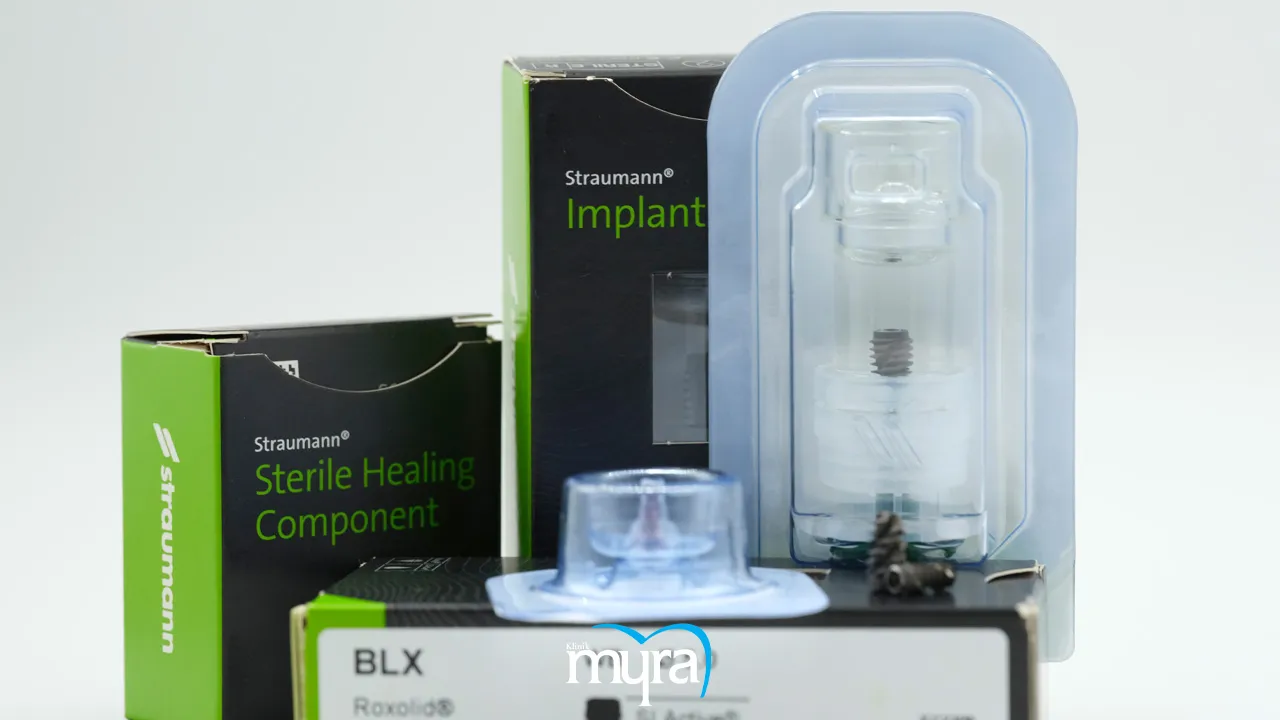
3. Preliminary Procedures
Preliminary procedures are extra treatments that are sometimes required before or during the implant procedure to make sure the success of the implants. The price of dental implants is impacted by preliminary treatments like bone grafting or tooth extractions. Patients who lack sufficient bone density or volume to sustain the implants require bone grafting in order to establish a stable base for the implants. The extra step raises the cost of the implant operation overall. It is necessary to extract teeth prior to the implant operation in order to remove any residual damaged teeth, which raises the cost of the procedure overall. These prior procedures are not necessary in all implant cases, depending on the oral health of each patient. Speaking with a dental expert to ascertain whether any preparatory operations are required and how they affect the overall cost of dental implant procedures is recommended.
4. Location of Clinic
Clinic location refers to the physical location of the dental practice where the dental implant procedure takes place. The location of the dental clinic affects the cost of dental implants. Practices in urban areas or more affluent neighborhoods are expected to charge higher fees than those in rural or less populated areas. The differences in overhead costs, such as rent, salaries, and equipment expenses, are higher in more affluent areas. Additionally, dental professionals in high-demand areas are expected to have more competitive fees due to increased demand for their services. However, the cost of dental implants depends on various factors, including the materials used, the number of implants required, and the expertise of the dental professional performing the procedure. Consultation with a dental professional to determine the most suitable implant treatment plan and associated costs based on individual needs and goals.
5. Individual Characteristics of Patient
Individual characteristics of a patient refer to factors that are unique to each individual and impact the success and cost of the implant procedure. The individual characteristics of a patient affect the cost of dental implants in several ways. Patients with healthy teeth and gums who require only one or a few dental implants incur lower costs. Patients with extensive tooth decay or gum disease who require multiple implants and additional treatments such as extractions or bone grafting are expected to cost higher.
The price is affected by the number of implants required for patients who need more implants and must undergo more complicated procedures. Complex implant procedures require more time and skill from the dentist, raising the expense.
How much does a dental implant cost per tooth in USA?
There are things to consider when it comes to the price of dental implants in USA compare to Turkey. The dental practice's location, the dentist's training, and the implant utilized all play a role. The cost of a single dental implant in the United States is approximately $3,224, according to the American Academy of Implant Dentistry. The cost ranges from $2,418-$3,224 or more, depending on the aforementioned factors.
There are many reasons why dental implants are projected to cost more than other tooth restoration methods. Dental implants are surgically implanted into the jawbone, which calls for specialized expertise and tools. Additionally, the material used for dental implants is completely biocompatible and forms a solid link with the jawbone to sustain the new tooth. Finally, receiving a dental implant usually needs a number of appointments as well as a healing and recovery period.
It is crucial to keep in mind that in addition to the cost of the implant itself. Additional costs include the price of any required diagnostic, pre-operative consultations, and post-operative care. The cost of treatment increases if bone grafting or other procedures are necessary to prepare the implant location.
It is important to consider the long-term benefits that they provide while the cost of dental implants seems high. Dental implants are a reliable and long-lasting replacement for lost teeth, often having a success rate of up to 98%. It improves the looks and function of the teeth, allowing them to eat and speak more comfortably and confidently.
Consultation with a dentist to discuss the options and get an accurate estimate of the single-tooth implant cost or the average cost of dental implants is essential. The price of a dental implant depends on the dental office's location, the dentist's or specialist's experience, and the implant type. Determining how much is a dental implant by speaking with the dental insurance company to know what things they cover is needed to lessen the cost.
How can I afford a Dental Implant?
Dental implants are expected to be a costly investment, but there are several options to consider if a person is not capable of paying the full cost of treatment.
Below are the other ways to pay if one is unable to afford dental implants.
- Dental Loans: Loans for dental work are a special category of loans that are intended specifically for dental care. They provide lesser interest compared to credit cards and allow people to make affordable monthly payments over a fixed term.
- In-house Payment Plans: Many dental offices offer in-house payment plans that allow the spread of the cost of treatment over a longer period. These plans come with little or no interest and allow affordable monthly payments that fit within the budget.
- Health Reimbursement Account (HRA): An HRA is a savings account that is used to pay for eligible medical costs, including dental implants. HRA funds cover dental implant costs and offer tax benefits. Patients have the option to check their HRA plan and consult with a dental professional for details.
- Health Savings Account (HSA): The amount connected with certain medical procedures is being removed from what is known as a health savings account (HSA). The recipients were eligible for certain tax benefits while the funds were being utilized to pay for dental implants
- Flexible Spending Account (FSA): An FSA is a savings account that is able to pay for approved healthcare expenses, including dental implants. FSA funds are used to cover the cost of the procedure and are eligible for tax benefits.
Does Insurance cover Dental Implants?
Yes, insurance helps to cover charges for dental implants. Dental insurance covers most of the costs, but uninsured costs must be paid.
Medical insurance gives a fair share of the total amount if the need for a dental implant is due to a health condition or injury. However, health insurance plans do have limitations and exclusions. The coverage depends on the specifics of the policy and the clinically indicated procedure.
It is needed to review the specific policy of the insurance and to discuss it with a dental or medical provider to know the extent of coverage and any included costs. Additionally, some dental offices offer financing choices or payment schedules to manage the charge for dental implants.
There are plans that cover a per cent of the cost, while some provide the full cost of the procedure. For example, the cost of dental implants is partly covered by dental insurance plans, while others cover up to a certain limit or have a yearly maximum limit for coverage.
What is the alternative for Dental Implants?
Patients who lost or injured their teeth often are expected to get dental implants. There are a lot of alternative treatments offered to consider when fixing a teeth issue. There are a variety of dental implant resolutions available depending on the specific dental problem being treated and the needs of the individual patient.
Dental implants are the most known treatment option for persons with lost or damaged teeth, but numerous alternatives exist. The alternative treatment for dental implants varies based on the exact dental condition being treated and the patient's individual requirements. One alternative to dental implants is a dental bridge. A bridge is a dental device that utilizes neighbouring teeth as anchors to give support for a replacement tooth. A bridge is used to replace a single missing tooth or multiple absent teeth.
Dentures are artificial teeth used to swap several missing teeth. Incomplete dentures are used to replace several missing teeth, whereas full dentures substitute a whole dental arch. Dentures are one of the alternatives of dental implants.
Orthodontic treatment serves as an alternative to dental implants in certain situations. The use of orthodontic treatment to realign teeth and close spaces eliminates the need for dental implants.
Alternatives to dental implants exist for a variety of reasons, including cost, patient preference, and medical conditions. Dental bridges and dentures provide patients with missing or damaged teeth with a functional and cost-effective solution. It is essential to discuss the options with a dentist in order to get the best treatment plan. The dentist helps by comprehending the benefits and drawbacks of each option and making a knowledgeable decision.
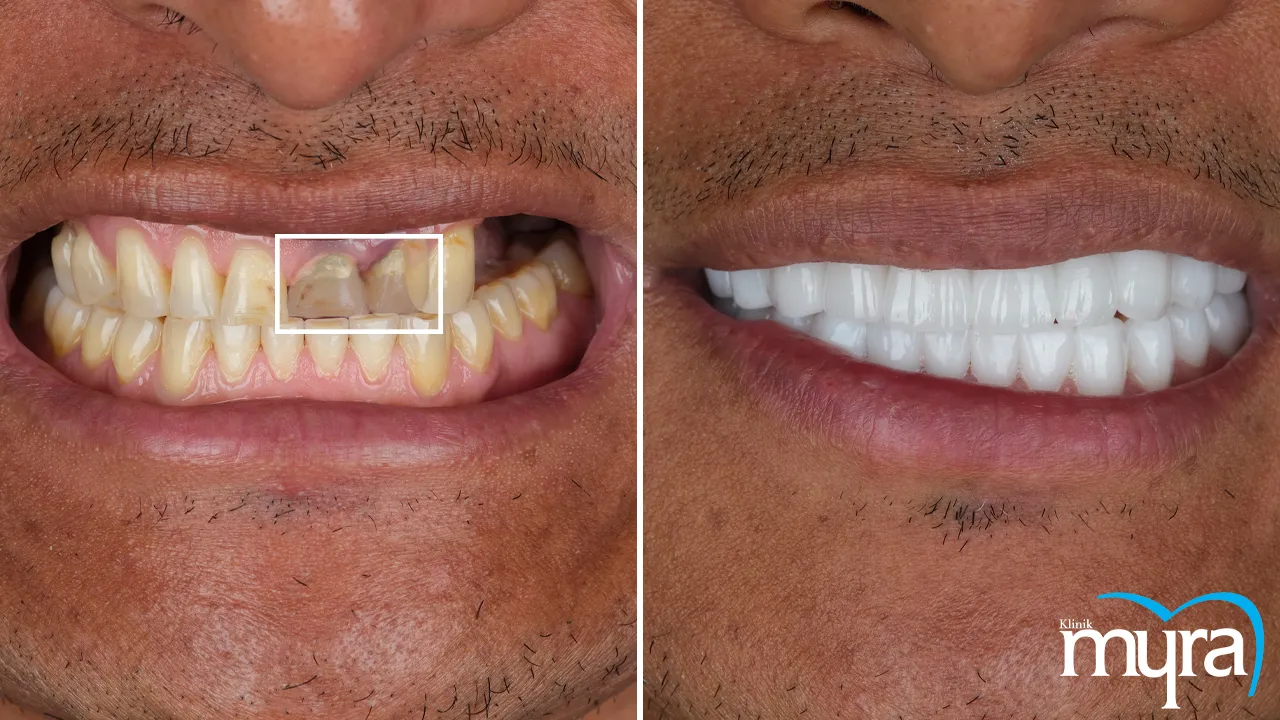
Are Dental Implant Alternatives cheaper?
Yes, dental implant alternatives are more inexpensive than dental implants in many cases. Dental implants are frequently seen as a more sophisticated and durable replacement for lost teeth. Sometimes the price is higher due to the complexity of the surgical process and the materials used. On the other hand, dental implant substitutes such as dental bridges and dentures provide cost-effective solutions for patients with missing teeth.
The price of dental implant alternatives still differs, though, based on the particular procedure, the supplies utilized, and the demands of each patient. For instance, a dental bridge that needs the teeth next to it prepared costs more than one that merely replaces the one lost tooth.
The optimal option for particular needs and budget is determined by discussing the costs and advantages of treatment options with a dental professional and insurance company. Dental implant alternatives occasionally are covered by dental insurance programs, making them a more accessible option for patients.
Is it expensive to get a Dental Implant in UK?
Yes, getting a dental implant is expensive in UK. The cost depends on several factors such as the location of the implant, the complexity of the case, the materials used, and the individual patient's needs.
The cost of a single dental implant ranges from £2,418-£3,224, which is a significant investment for some patients. The cost of a dental implant typically includes the implant itself and the crown that is attached to the implant to replace the missing tooth in addition to the surgical procedure.
Additional costs such as diagnostic tests, x-rays, and consultations are associated with the procedure. The costs vary depending on the specific case and the location of the dental provider.
The cost of dental implants is expected to be a significant barrier for some patients. It is important to note that dental implants are often considered a highly effective and durable solution for missing teeth. Dental implants are designed to last for many years with proper care and maintenance. Implants make them a worthwhile investment for patients seeking a long-term solution for missing teeth.
Discuss the cost and benefits of the procedure with a dental provider and insurance company to determine the best option for an individual needs and budget. Some dental insurance plans provide partial coverage for dental implants, so it is important to review the specific policy and discuss the details with the insurance provider. Additionally, dental offices offer financing options or payment plans to help manage the cost of the procedure.
Are Dental Implants worth investing in?
Yes, for many patients, dental implants are worth investing in due to their reliability, ability to preserve the integrity of the jawbone, and natural look and feel. However, the decision to invest in dental implants depends on the individual patient's needs, preferences, and budget.
One major advantage of dental implants is their durability. Dental implants are designed to be a long-term solution for missing teeth, unlike other tooth replacement options such as dentures or bridges. Given proper care, dental implants last for many years, which ultimately saves patients money in the long run.
Another benefit of dental implants is that they help preserve the integrity of the jawbone. The jawbone begins to deteriorate over time when a tooth is lost. However, dental implants are designed to fuse with the jawbone, which helps maintain the strength and structure of the bone. Implant helps prevent additional tooth loss and helps maintain the shape of the face.
Dental implants are designed to replace a real tooth. Implants give patients a more comfortable and realistic-looking replacement for lost teeth. Additionally, dental implants increase the patient's self-esteem and enhance their quality of life.
Dental implants cost more, depending on the location, intricacy, materials, and patient needs. Many dental insurance programs cover dental implants partially, and dental clinics provide financing or payment plans to help cover the expense.
Can I receive free dental implants?
No, it is unlikely to receive free dental implants. Dental implants are considered a costly procedure and involve a significant amount of time and expertise from the dental professional performing the procedure.
Charitable organizations sometimes offer free or reduced-cost dental care to individuals who cannot afford it. These opportunities are usually limited and are not available to all patients. Patients who agree to participate in a clinical trial or research study receive free or discounted dental implant operations from dentistry schools or research programs. However, these opportunities are usually limited and not available to all patients.
Discuss dental implant costs with a dentist and insurance company to find the best solution for the needs and budget. Some dental offices offer financing options or payment plans to help manage the cost of the procedure. Additionally, it is important to maintain good oral hygiene and preventive care to help prevent the need for expensive dental procedures such as dental implants.





